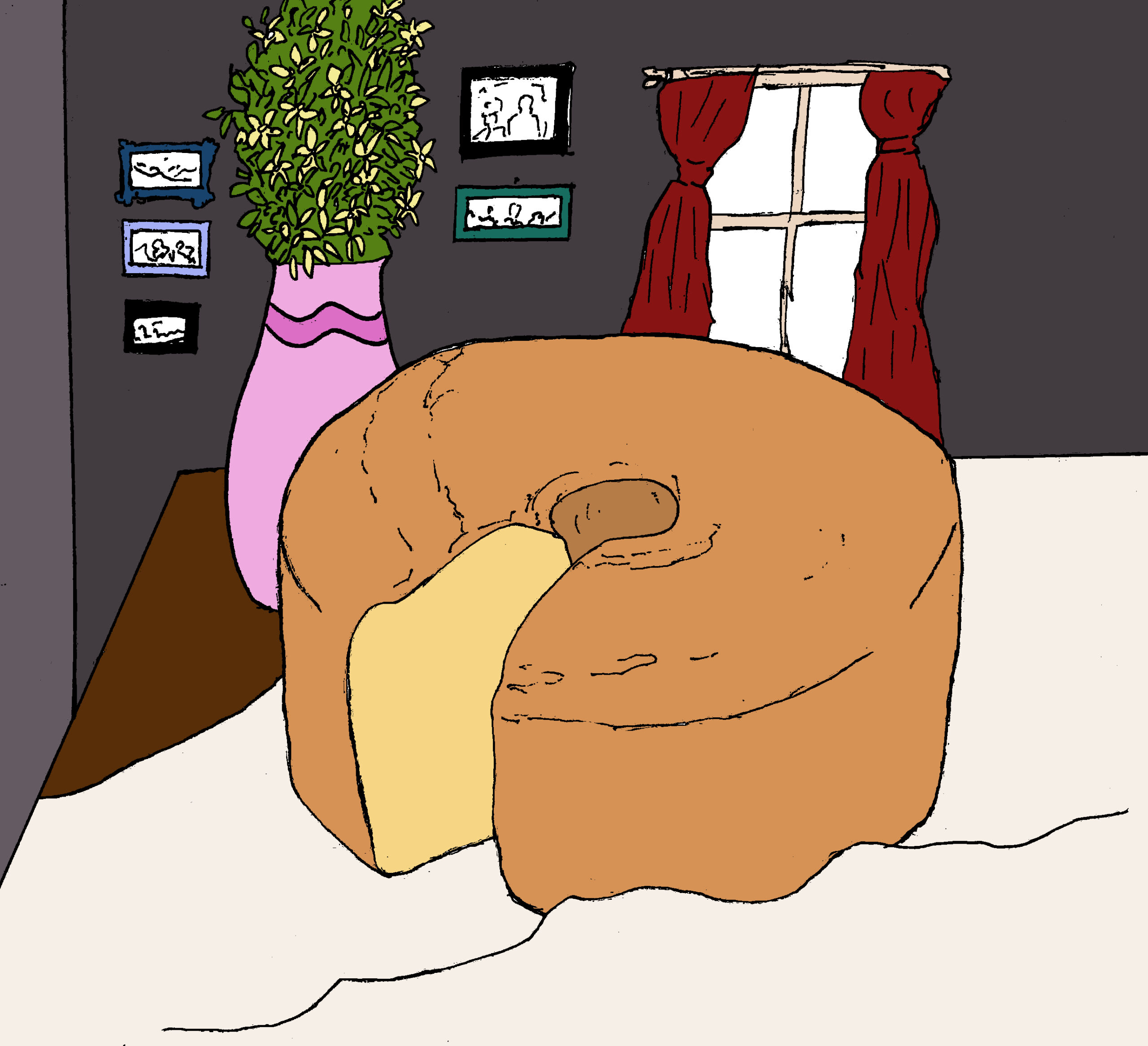Remember me, though I have to travel far
October 30, 2020
 This
piece represents the opinion of the author
.
This
piece represents the opinion of the author
.
 Nur Schettino
Nur SchettinoSometimes I wonder if my path to becoming a chemistry major started because of my love for baking. Friends that know me well know that I often bake desserts such as flans, cakes and various types of cookies for birthdays or other celebrations. For my love of baking, I have to thank my maternal grandmother, Flor, whom I have affectionately called “Tata” ever since I could utter any type of word. The majority of my family still lives in Peru, and because quarantine over the summer left me with ample time to spare, I reconnected with many of my family members, including Tata, a major staple of my life before immigrating to the United States in 2009.
At the time of one of our calls, Tata was taking care of some of my little cousins, who were joyfully watching Pixar’s “Coco” in the living room of my old home. For those who do not know, “Coco” tells the story of 12-year-old Miguel, an aspiring musician who accidentally travels to the Land of the Dead during the Mexican holiday of Día de Los Muertos and uncovers the truth behind his family history. The importance and remembrance of family, a theme in “Coco,” became our talking point, and thus she recalled many stories from my childhood before I moved away.
However, I could only vaguely recall some of her stories; it’s almost as if if they had slowly faded away from my memory over the years. Her method of helping me remember? She gave me her classic recipe for queque de vainilla, a traditional Peruvian vanilla- based cake, and told me to make it on my own for the first time.
After gathering the ingredients necessary, I began to put the recipe together, but no muscle memory from the past came to my hands. My queque stayed in the oven for an hour, and its golden top looked just like my Tata made it, but still nothing came back to me. After removing the queque from the oven, however, I felt the wonderful aroma come over my nose; it was the aroma of my old home. It was almost as if I had been teleported back in time—every part in my body felt the essence of my childhood. My ears recalled the lyrics to the songs my Tata once sang to me, and as I closed my eyes to process this, I could see visions of her old pink flower vase, the many photographs hanging on the walls and even my old tabby cat, Nicolas.
How could I have forgotten such wonderful events, especially at 20 years old? Simply, I could not afford to lose these types of memories again, and thus as a response that same day, I started a digital journal and wrote down the memories now recalled in my mind. Furthermore, a talk with my paternal grandmother, Estela, revealed the more crucial importance of my new journal.
Although I never truly connected with my paternal grandfather, the first man in my family who bore the name Carlos Campos, he remains the most fondly remembered figure of my father’s side of the family. My grandmother Estela could go on forever recalling every detail about him, such as how he loved his coffee with bread before a hard day’s work in the fields or about how sharply he dressed on Sundays for Church. Why did she emphasize these details so much? It turns out grandpa Carlos died as a result of Alzheimer’s disease, and so she is striving to keep his memories alive in every way she can. Every February on the anniversary of his passing, my father even prepares his father’s favorite meal as a way to remember him.
As an immigrant to the United States, I was so focused on building generational wealth for the future that I ignored my family’s most invaluable generational gift: their stories and memories from the past. Oral history forms part of some of the strongest family traditions in Latin America, but does it have to stay an oral history forever?
For this year’s Día de Los Muertos, I encourage my readers to do something to remember their past, or remember their present. Call your family members, start a journal or maybe even watch Coco. The human memory, even with how marvelously it works, can unfortunately fail at any moment. It is inevitable that one day even I will begin to forget how to make my favorite flan recipe, but for now I can happily continue grinding away at my school work knowing I will never fully forget because I decided to strive to keep my experiences and my family’s past alive.

Comments
Before submitting a comment, please review our comment policy. Some key points from the policy: